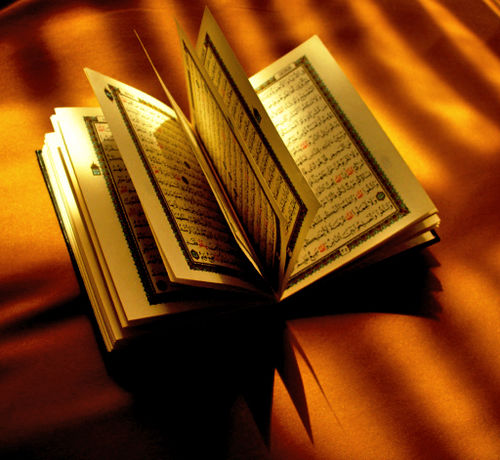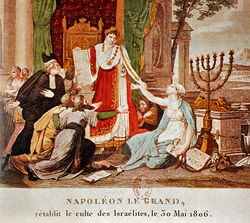Difference between revisions of "Category:Early Islamic Studies--1800s"
| Line 32: | Line 32: | ||
* [[Dizionario storico degli autori arabi più celebri e delle principali loro opere (1807 De Rossi), book (Italian)]] | * [[Dizionario storico degli autori arabi più celebri e delle principali loro opere (1807 De Rossi), book (Italian)]] | ||
* [[Maometto (Muhammad / 1817 Winter & Romani), opera (Italian)]] | * [[Maometto (Muhammad / 1817 Winter & Romani), opera (Italian)]] | ||
* [[Подражания Корану (Imitations of the Qur'an / | * [[Подражания Корану (Imitations of the Qur'an / 1824 Pushkin), poetry]] | ||
* [[Was hat Mohammed aus dem Judenthume aufgenommen? (Judaism and Islam / 1833 Geiger), book]] | * [[Was hat Mohammed aus dem Judenthume aufgenommen? (Judaism and Islam / 1833 Geiger), book]] | ||
* [[Corani textus Arabicus (The Qur'an: Arabic Text / 1834 Flügel), book]] | * [[Corani textus Arabicus (The Qur'an: Arabic Text / 1834 Flügel), book]] | ||
Revision as of 10:13, 14 June 2015
|
The page: Early Islamic Studies--1800s, includes scholarly and literary works on Early Islamic Studies, made in the first half of the 19th century, or between 1800 and 1849.
The modern study of the Qur'an began with Gustav Flügel (1802-1870), Gustav Weil (1808-1889) and Theodor Nöldeke (1836-1930) in Germany. Flügel published the first modern edition of the Qur'an in 1834 (which was largely used before the Royal Cairo edition of 1923) and a Concordance to its Arabic text in 1842 (although it is difficult to know which precise manuscripts he relied on). Weil published in 1844 an historical-critical introductions to the Quranic textus receptus. As to Muhammad, the first modern studies were those published by Abraham Geiger (1810-1878) in 1833 and Gustav Weil in 1843. Geiger's pioneering essay on Muhammad's life and Weil's study on the Biblical legends known to the early Muslims (1845) were also the first works to explore a number of possible early Islamic borrowings from Judaism, whilst its apparent Christian influences
|
2010s (Top) -- 2000s (Top) -- 1990s (Top) -- 1980s (Top) -- 1970s (Top) -- 1960s (Top) -- 1950s (Top) -- 1940s (Top) -- 1930s (Top) -- 1920s (Top) -- 1910s (Top) -- 1900s (Top) -- 1850s (Top) -- 1800s (Top) -- 1700s (Top) -- 1600s (Top) -- 1500s (Top) -- 1400s (Top) --Pre-Modern (Top) -- Medieval (Top)
Languages English -- French -- German -- Italian -- Spanish -//- Arabic -- Croatian -- Czech -- Danish -- Dutch -- Estonian -- Greek -- Hebrew -- Hungarian -- Japanese -- Latin -- Maltese -- Persian -- Polish -- Russian -- Serbian -- Slovenian
|
Pages in category "Early Islamic Studies--1800s"
The following 20 pages are in this category, out of 20 total.
1
- Leben Mohammeds, des Propheten (1802-04 Vetterlein) = La vie de Mahomet (The Life of Muhammad / 1732 Gagnier), book (German ed.)
- Mahomet = Mahomet le prophete (Mahomet the Prophet / 1802 Voltaire / Goethe), play (German ed.)
- Dizionario storico degli autori arabi più celebri e delle principali loro opere (1807 De Rossi), book (Italian)
- Maometto (Muhammad / 1817 Winter / Romani), opera (music & libretto), Milan premiere
- Подражания Корану (Imitations of the Qur'an / 1824 Pushkin), poetry
- Der Koran; oder, Das Gesetz der Moslemen (The Qur'an; or, The Law for the Muslims / 1828 Boysen / Wahl), book
- Was hat Mohammed aus dem Judenthume aufgenommen? (Judaism and Islam / 1833 Geiger), book
- Corani textus Arabicus (The Qur'an: Arabic Text / 1834 Flügel), book
- Le Coran (The Qur'an / 1840 Kasimirski), book
- Concordantiae Corani Arabicae (Concordances to the Arabic text of the Qur'an / 1842 Flügel), book
- Mohammed der Prophet: sein Leben und seine Lehre (Mohammad the Prophet: His Life and Teachings / 1843 Weil), book
- Mohammed der Prophet (Muhammad the Prophet / 1844 Duller), novel
- Mohammed und seine Frauen (Muhammad and His Wives / 1844 Frick), novel
- Historisch-kritische Einleitung in den Koran (Historical-Critical Introduction to the Qur'an / 1844 Weil), book
- Biblische Legenden der Muselmänner (Biblical Legends of the Mussulmans / 1845 Weil), book
- Mahomet and His Successors (1849 Irving), non-fiction

